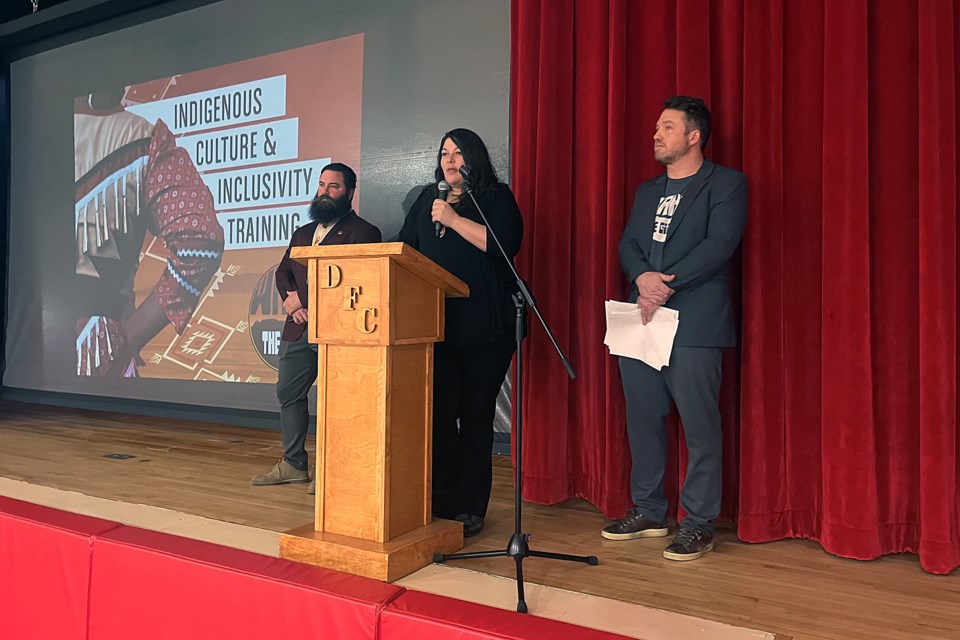THUNDER BAY — Staff at both Thunder Bay Regional Health Sciences Centre and St. Joseph’s Care Group will have to undertake mandatory Wake the Giant Indigenous cultural and diversity training.
The 30-minute online session was developed in part to teach employees at both organizations create more inclusive spaces, free of racism and welcoming Indigenous Peoples with open arms.
Rhonda Crocker Ellacott, president and CEO at Thunder Bay Regional, said the program was a perfect fit for the hospital, which in the past has faced accusations of incidents of poor treatment of Indigenous Peoples.
The hospital needs to do better, she said, adding the organization has made it a priority to address equity, diversity and inclusion at the Health Sciences Centre and heard loud and clear last year the importance of all three.
“We heard many, many stories about how we could be better,” Crocker Ellacott said. “And we know we can do better. We know we want to create an organization and an environment where people feel culturally safe, where their wishes are respected and overall, we’re able to create an exceptional care experience for every patient, every time, leading to that as our new vision.
Crocker Ellacott said understanding and learning about Indigenous history and traditions, culture and what individuals have had to endure will go a long way to realizing that vision.
“We learn more from failures than we do from successes many, many times. And by hearing about these stories and understanding what individual's situations are, it will certainly help us to be able to relate better, create a more open organization that is culturally safe and understanding of Indigenous People,” she said.
Kelli O’Brien, president and CEO of St. Joseph’s Care Group, said 2,200 employees will be expected to take part in the training effort, saying its part of their process as they walk with humility to create a culture where everyone feels welcome and receive care with respect and dignity.
“We made it mandatory to signal our commitment to this work … This really is just in line with that commitment. We spent a number of years build the foundation, to be able to be prepared to take that step today,” O’Brien said.
The program was developed by Northern Nishnawbe Education Council leaders, with the collaboration of elders, knowledge keepers, educators and the Wake the Giant committee, along with support from health-care partners.
It took more than two years to put together and is expected to be taken up by 5,900 employees combined at the two institutions when it becomes mandatory training on April 1.
In addition to helping enrollees identify racism and engaging in anti-Indigenous racism strategies, the training also includes information to help understand the harm left behind by colonialism, the residential school system, the Sixties Scoop and Indian hospitals.
Upon completion of the course, employees and volunteers at Thunder Bay Regional and St. Joseph’s Care Group will receive a special decal to place on their employee badge, a signal to patients and guests that they’ve gone through the module.
Dobi-Dawn Frenette, the director of education at NNEC, said it’s important for the city of Thunder Bay to do everything it can to partner together to ensure Indigenous People have voices in the spaces they need to access for services.
“Working with the Thunder Bay Regional Health Sciences Centre and the St. Joseph’s Care Group could be very monumental in terms of the client services and patient services that could be available to people and their families, in particular ensuring that marginalized people feel they have a voice when they’re coming into access health-care services.”
Frenette said there’s no reason the training could not be rolled out to other large- and medium-sized businesses in the very near future.
